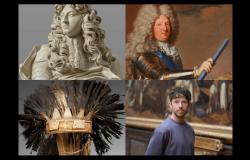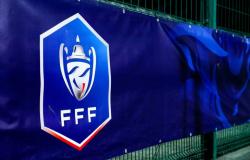
“I am racist”, concedes Philippe Artières at the end of “At point blank range. Versailles 1972”, an intimate and moving essay. A historian of little things, the researcher analyzes how a happy childhood, in the bourgeois city of Versailles, predisposed him to experience in his flesh the rejection of others.
Versailles, its Sun King, its castle, its French Touch… Versailles was also, in the 1970s, the cradle of a new life, driven by the construction of opulent cities. Philippe Artières grew up in one of them, “La Résidence”, sharing the daily life of “bourgeois, Catholic and white” families.
A hard reality to accept
Fifty years later, the historian, research director at the CNRS, revisits with the discernment of maturity the behind-the-scenes of this happy childhood. And what he discovers there is not always pretty. In “At Point Blank. Versailles 1972”, this historian attached to “minor archives”, great surveyor of small stories, retraces the course of his life to detect, in this “homogeneous and self-centered” microcosm, the root of a racist gaze which he cannot get rid of.
My point is not to complain or talk about my shame. I’m trying to write about a world that is indeed segregated, but a world that I don’t know is segregated. This is what sociologists today call “racial innocence.” We think we are alone in the world.
In his memory, there is the setting: a peaceful town, model families (three children “two years apart”) who go skiing in Les Arcs and generously welcome “little Cambodians” during the boat people crisis. . The documents and archives that he exhumes in parallel, however, tell another story: that of North Africans beaten up, of refugees parked in shanty towns on the outskirts of cities, and of a “discreet racism which does not make waves or controversies within the family .”
A concealed police blunder
Among these documents, Philippe Artières became aware of a case that caused a lot of noise at the time, without the small world of his childhood being affected: the death in 1972, in the Versailles police station, of Mohamed Diab, an Algerian worker. shot with a burst of machine gun. This death, which has all the trappings of a racist police blunder, mobilizes public opinion. In Paris, Michel Foucault and Jean Genet lead a procession of protests. Lawyer Gisèle Halimi defends the family, the unions are inflamed.
This blind spot, this gap in his youthful memories becomes the central question of Philippe Artières’ story: “How can we be so blind and deaf, not feel these practices of exclusion, discrimination, stigmatization? ( …) The silence on the Diab affair reveals more than indifference, more than denial, a gesture of burying.”
Understanding Ordinary Racism
Then begins an interrogation on the mechanisms of this racism, starting from the memory of the body: Philippe Artières thus remembers that as a teenager, he was seized by a movement of fear when encountering “big black people” on the outskirts of Les Halles, at Paris. Or, even more embarrassing, his attitude when he crosses the United States aboard a Greyhound bus, frequented mainly by African-Americans, and when he gets as close as possible to the white driver, reproducing without realizing it. account for the historical actions of racial segregation.
Juxtaposing personal memories and archival documents, family photographs and newspaper articles, this unique essay poses, through the junction of historical work and intimate memory, eminently current questions: those of “white privilege”, colonial domination and structural racism at work in France. With, failing to offer a summary of detoxification, the desire to fight, to turn the weapon around to shoot, “point blank”, at his own failings.
Nicolas Julliard/sf
Philippe Artières, “At point blank range. Versailles 1972”, editions Verticales, October 2024.
Do you like to read? Subscribe to QWERTZ and receive this newsletter every Friday dedicated to book news prepared by RTS Culture.





